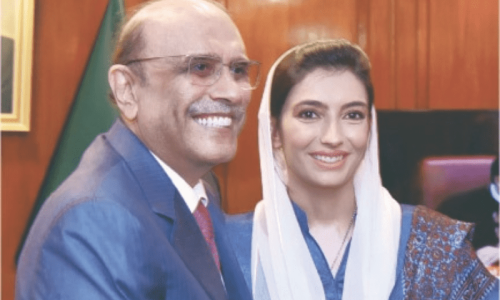ISLAMABAD: Azad Jammu and Kashmir (AJK) President Masood Khan, while welcoming the United Nations report on human rights violations and abuses in India-held Kashmir, has expressed the hope that the broader international community, including the UN Security Council and major capitals, would not take this report lightly or try to sweep it under the carpet.
“This report requires their sharp and undivided attention to stem a raging human rights crisis in a volatile and unstable region,” he said.
He also welcomed the offer of the High Commissioner for Human Rights (HCHR) to constitute a commission of inquiry to investigate these abuses and said the report of the Office of the HCHR chronicles close and consistent violations of human rights in held Kashmir, especially after the martyrdom of Burhan Wani on July 8, 2016 and lists instances of excessive use of force, killings, use of pellet guns resulting in eye injuries to a number of people, arbitrary arrests and detentions, tortures, sexual violence and enforced disappearances.
“This list is not exhaustive, it is the tip of the iceberg”, the AJK president said, adding that the high commissioner office was only able to remotely monitor the egregious human rights violations in held Kashmir as India has refused an earlier officer by the high commissioner to send a fact-finding mission to the occupied valley.
Mr Khan said that India had repeatedly rejected requests by the High Commissioner’s Office to obtain access to held Kashmir because it wanted to hide its crimes against humanity. Once again, he said, the High Commissioner had asked for unconditional access to held Kashmir to ascertain the situation not through remote monitoring but through direct observation.
He has endorsed the High Commissioner’s recommendations to repeal the Armed Forces Special Powers Act, 1990 (AFSPA). Though the High Commissioner had recommended that India’s Public Safety Act, 1978 (PSA) be amended, the president said that this black law should also be repealed as it has been called “lawless law” by Amnesty International. “These two laws along with other draconian laws have been the principal instruments of coercion used by the Indian occupation forces”, he said.
The AJK president said that in line with the findings and recommendations of the High Commissioner, India should release all political prisoners, remove blanket restrictions on access to the internet and mobile telephone networks and bans on the movement of journalists and publication of newspapers in held Kashmir.
Mr Khan said that it was high time that in pursuance of the recommendations of the High Commissioner, an independent, impartial and credible investigation is conducted in regard to all unmarked mass graves in India-held Kashmir.
Published in Dawn, June 16th, 2018














































Dear visitor, the comments section is undergoing an overhaul and will return soon.